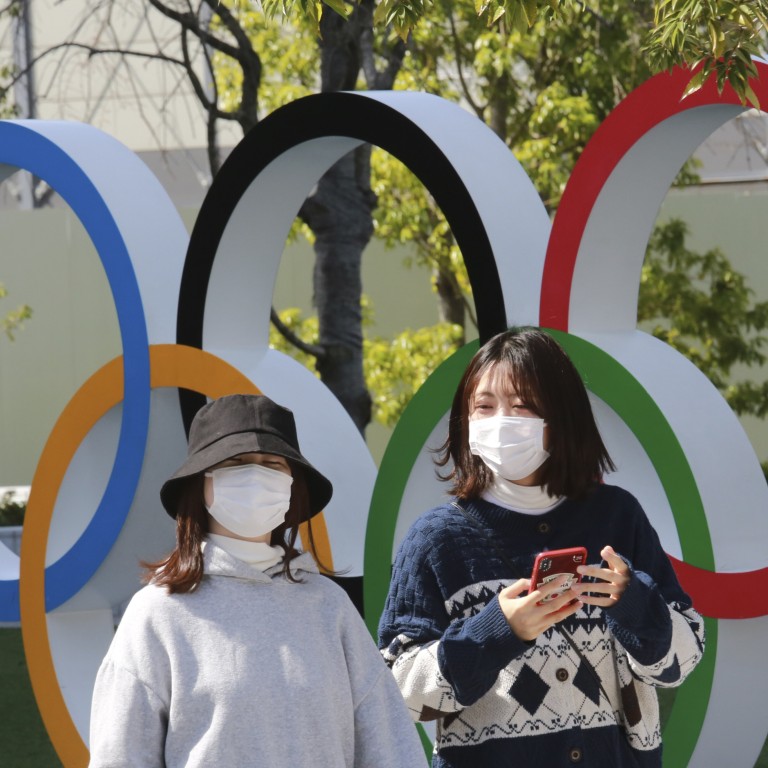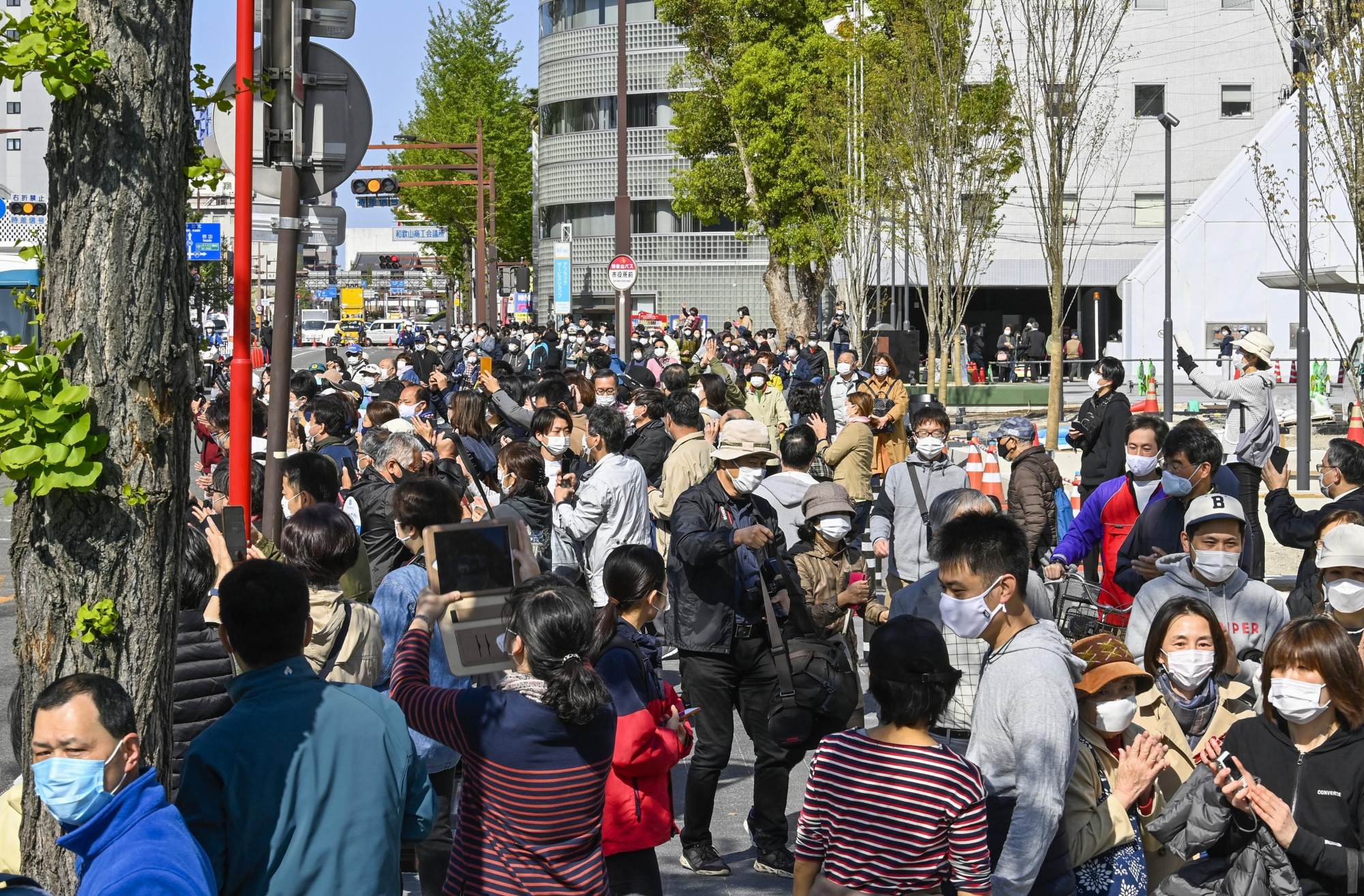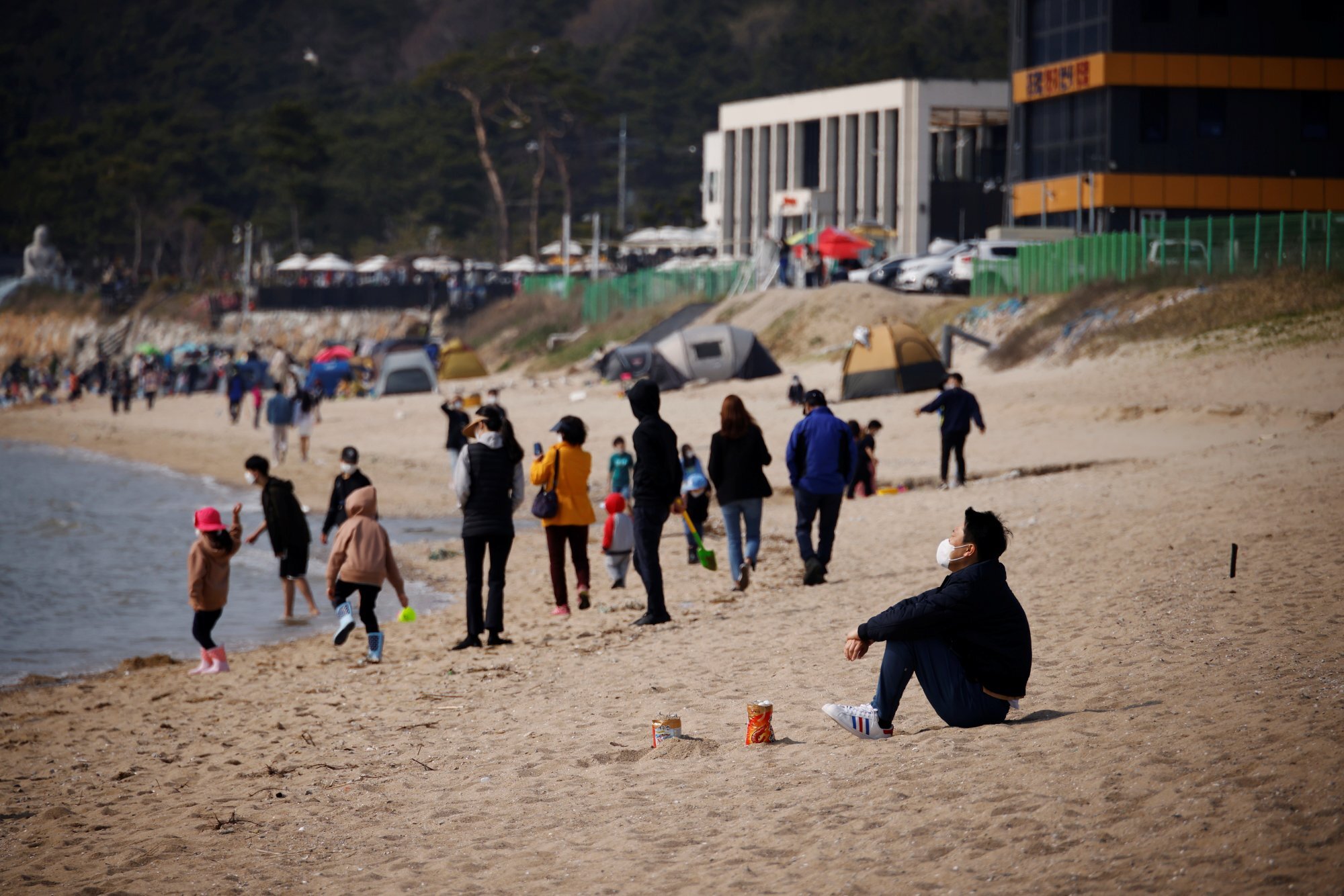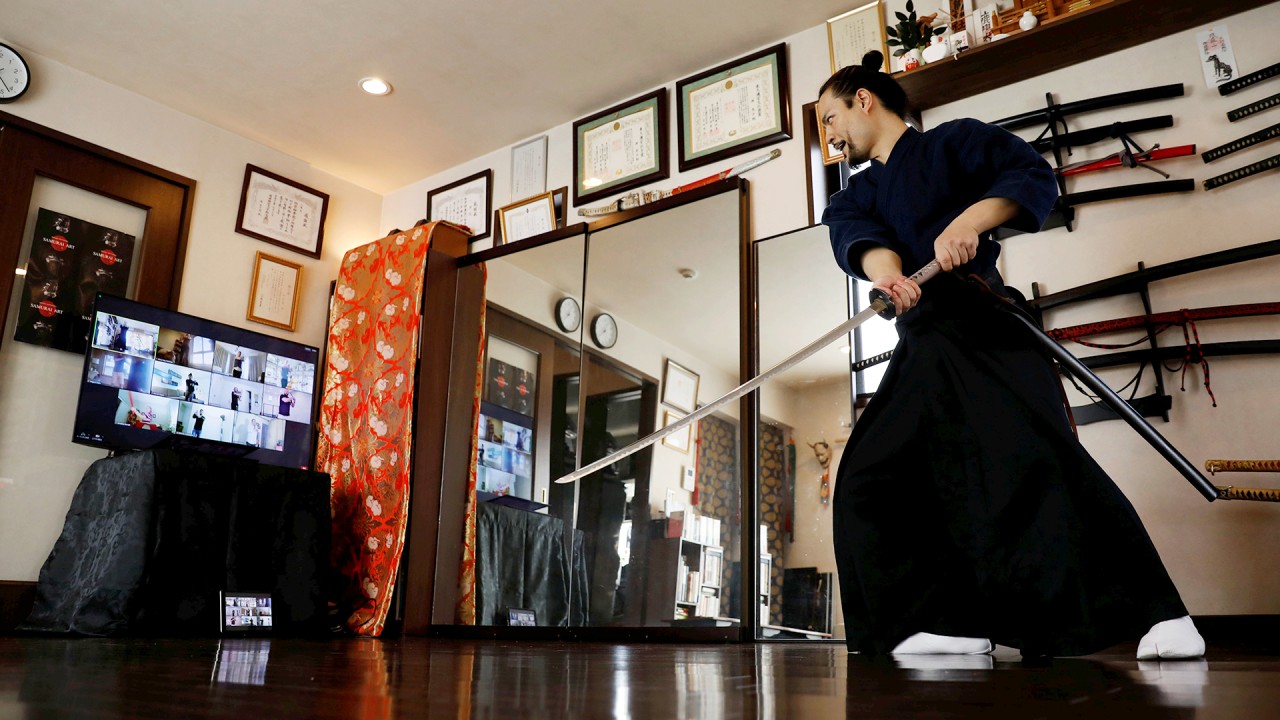
Coronavirus: Tokyo Olympics to reserve hotel for athletes with Covid-19; South Korea resumes AstraZeneca roll-out
- Covid-positive athletes and other Games participants who do not require hospitalisation will be quarantined for 10 days in principle, officials say
- Elsewhere, Manila is easing its lockdown; India reported a record 152,879 new infections, and South Korea is resuming the wider roll-out of AstraZeneca jabs
Tokyo Olympic organisers plan to prepare 300 hotel rooms for athletes who test positive for the coronavirus at this summer’s Games but show no or minor symptoms of Covid-19, Kyodo news agency said on Sunday.
Japan’s government is placing Tokyo under a month-long state of “quasi-emergency” from Monday to combat surging infections, less than a month after a broader state of emergency was lifted for the capital and Olympic host.
The Tokyo organising committee plans to reserve an entire hotel located a few kilometres away from the athletes’ village in the Harumi waterfront district, which is likely to cost several million dollars, Kyodo said, citing several unnamed sources.
Japan Covid-19 patient receives world’s first living donor lung transplant
Coronavirus-positive athletes and other Games participants who do not require hospitalisation will be quarantined in the rooms for 10 days in principle, and medical staff will treat them around the clock, it said.
The committee will also prepare about 30 special vehicles to transport the patients to the hotel, according to Kyodo.
Athletes will receive Covid-19 tests every four days at least under rules unveiled in February for the Tokyo Games, expected to begin in late July after a one-year delay due to the pandemic. More guidance on isolation and testing is to come in April.

Japan has recorded more than 500,000 infections and nearly 9,400 deaths, public broadcaster NHK said on Saturday, low compared to most other major economies. But concerns about the new wave of infections are rising ahead of the Games.
On Saturday, the governor of Osaka prefecture in western Japan warned that he may need to ask the central government to declare a state of emergency if current measures to quell the coronavirus outbreak are deemed insufficient.
The central government on April 5 designated Osaka, Hyogo and Miyagi prefectures as areas needing stricter measures to contain outbreaks. The government said on Friday that the quasi-state of emergency would be applied to Tokyo, Kyoto and Okinawa prefectures from Monday.
Record daily infections in India
India reported a record 152,879 new Covid-19 cases, health ministry data showed on Sunday, as a second-wave of infections continued to surge and overwhelm hospitals in parts of the country.
The number of new fatalities stood at 839, the most deaths in more than five months, taking the toll to 169,275.
India’s tally of more than 13.35 million cases is the third-highest globally, behind only Brazil and the United States.
Thai ‘Hi-So’ elite blamed for new virus cases forcing closure of clubs
Authorities in New Delhi and in Punjab and Rajasthan states said on Saturday that they would not be able to continue vaccinations in the coming days unless stocks were replenished. Earlier this week, western Maharashtra state, the epicentre of the country’s outbreak, closed some vaccination centers and turned people away due to inadequate vaccine supplies.
Indian Health Minister Harsh Vardhan has said the country has enough doses and urged state governments to put an end to “fearmongering.”
India, a major vaccine manufacturer, has so far administered 97 million shots but is facing major supply snags as it works to inoculate a huge population of nearly 1.4 billion people. Vaccine shots are currently limited to people over age 45 and frontline workers.
– India on Sunday banned the export of antiviral drug Remdesivir and its active pharmaceutical ingredients as demand rocketed due to a record surge in Covid-19 infections, leading to a crippling shortages in many parts.
Authorities have blamed the ferocious resurgence of the virus mainly on crowding and a reluctance to wear masks.
Still, religious gatherings have continued and Prime Minister Narendra Modi and Home Minister Amit Shah have themselves addressed election campaigns attended by tens of thousands of people, many without masks and hardly any following social distancing.
On Sunday, harried relatives of patients made a kilometre-long queue to buy Remdesivir outside a big hospital in the western state of Gujarat, witnesses said.

South Korea to resume wider use of AstraZeneca vaccine
The Asian nation temporarily suspended the use of the vaccine for those below 60 last week after a 20-year-old health care worker was diagnosed with a blood clot soon after getting an Astra dose. It followed similar blood clot reports elsewhere, prompting dozens of countries to limit Astra use.
“Those under 30 will be excluded from AstraZeneca vaccine shots,” the Korea Centers for Disease Control and Prevention said in a statement. “It is because we concluded that the benefit from getting vaccinated was not big compared with the risk of rare blood clot.”
Extending the suspension could have further complicated the country’s vaccine roll-out as it is heavily reliant on the Astra vaccine in the first phase of inoculating nursing homes, hospitals and frontline health care workers.
About 90 per cent of over 1 million vaccines administered so far have been AstraZeneca’s, although those made by other companies are expected to be more widely used as South Korea opens up the programme to the general public in the summer. The country, with a population of about 50 million, has said it has secured enough doses to inoculate almost 80 million people.
South Korea considers vaccine export curbs to secure local supply
Meanwhile, as domestic tourism shows signs of recovery, residents and quarantine officials in the southern resort island of Jeju are having cause for both joy and concern.
According to Jeju provincial authorities on Sunday, the number of tourists who visited Jeju last month was 880,000, nearly double from 470,000 in the same month of last year.
The visitor count represented 85 per cent of the pre-Covid level of 1.03 million recorded for the same month in 2019, Yonhap reported.

At the same time, unknown numbers of coronavirus carriers among tourists are posing a headache to locals.
Eleven of 12 coronavirus cases confirmed on the island in the first week of April were from visitors or Jeju residents who contracted the virus from tourists, Yonhap reported.
“Coronavirus cases are rising among visitors as spring tourism becomes more active in April,” a Jeju provincial government official said, urging island residents to observe social distancing rules in dealing with visitors.
Manila eases lockdown
Metro Manila and the provinces of Bulacan, Rizal, Laguna and Cavite will be placed under a less restrictive community quarantine status until April 30, spokesman Harry Roque told a virtual briefing from hospital where he is being treated for Covid-19. He gave no details on which restrictions will be eased but said details would be released on Monday.
The Philippines is battling one of the worst coronavirus outbreaks in Asia, with hospitals in the capital overwhelmed amid record daily infections, while authorities face delays in delivery of Covid-19 vaccines.
Philippine man dies after being forced to do squats for breaking curfew, police chief sacked
On Sunday, the Department of Health recorded 11,681 new cases and 201 more deaths, bringing the country’s tallies to 864,868 confirmed infections and 14,945 fatalities.
New cases have surge in recent weeks, surpassing 15,000 on April 2, most of those in the congested capital.
Last week, Duterte cancelled a weekly televised address and a meeting with his coronavirus task force as some of his staff and security detail were found to be Covid-19 positive. Roque and Duterte’s defence minister, Delfin Lorenzana, also tested positive.
Thailand cases surge
Of the infections, 964 were domestic transmissions, including 236 in the capital Bangkok, the epicentre of an outbreak that has spread to most of Thailand’s 77 provinces.
The spike comes ahead of major national Songkran holidays, known for big street water fights that authorities have now banned for a second year due to the pandemic.
Thai ‘Hi-So’ elite blamed for new virus cases forcing closure of clubs
Authorities have urged people to avoid unnecessary travel and reduce gatherings to help limit the outbreak, which includes the highly transmissible B.1.1.7 variant first identified in Britain.
At least 38 provinces have required visitors from risk areas to undertake a 14-day quarantine. Nightspots such as pubs and karaoke bars in Bangkok and 40 provinces will be closed until April 23.
The managers of two entertainment venues in Bangkok, where many infections were reported, had been sentenced to two months in jail for Covid-19 violations, police said on Sunday.
Thailand has reported 3,661 domestic infections so far this month, including 1,294 cases in Bangkok, the highest amid the new outbreak. That brings total to 32,625, with 97 deaths.
Reporting by Reuters, AP, Bloomberg

.png?itok=arIb17P0)
